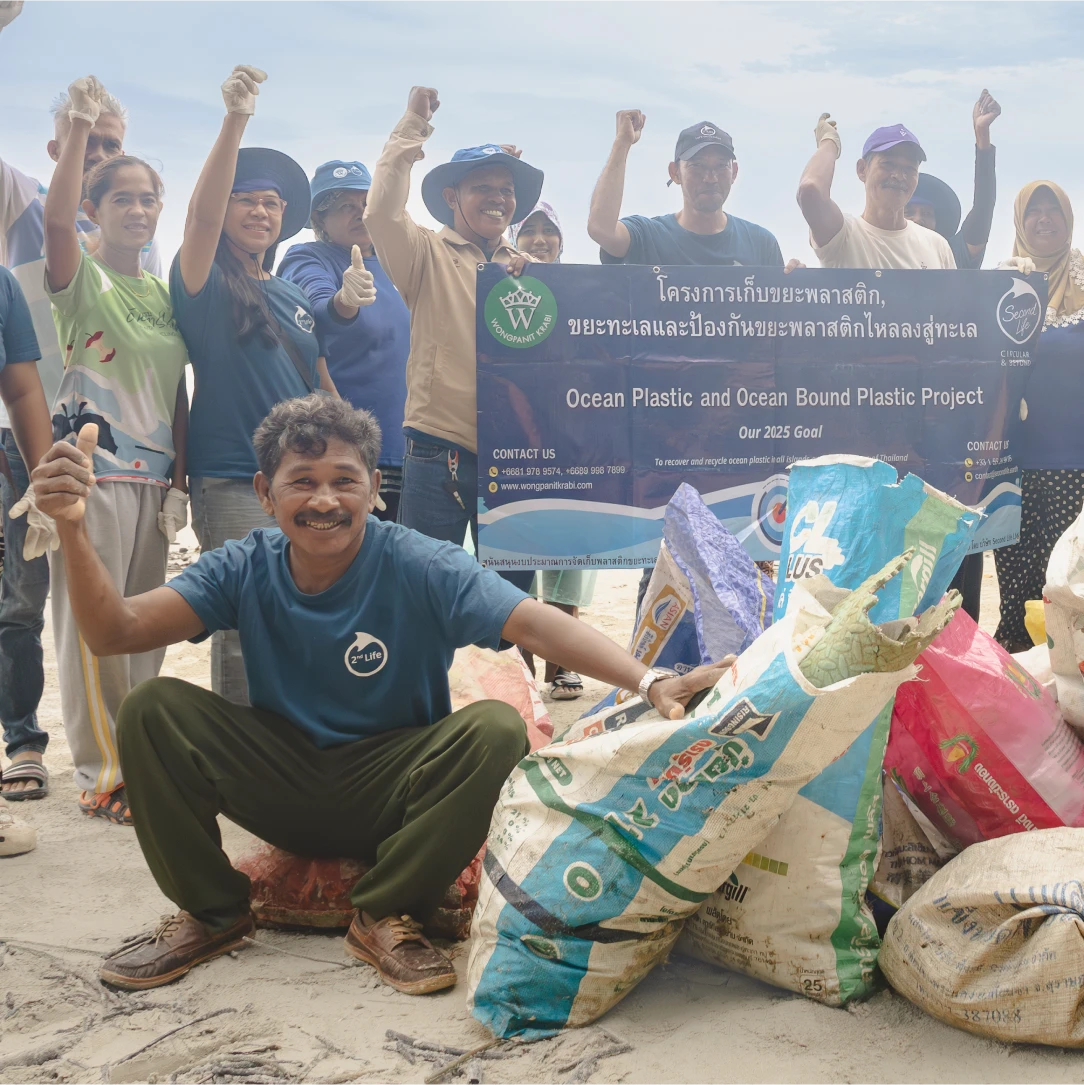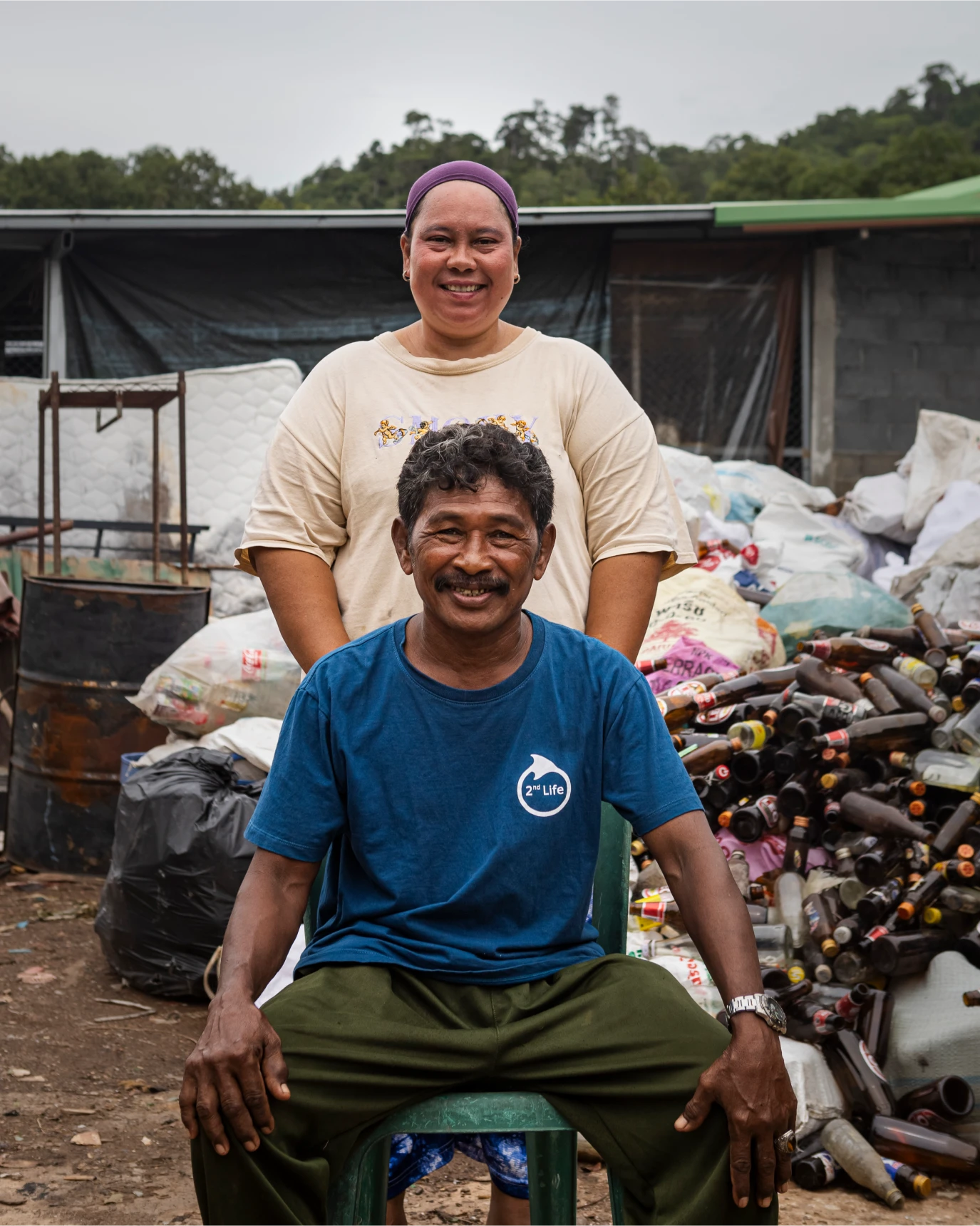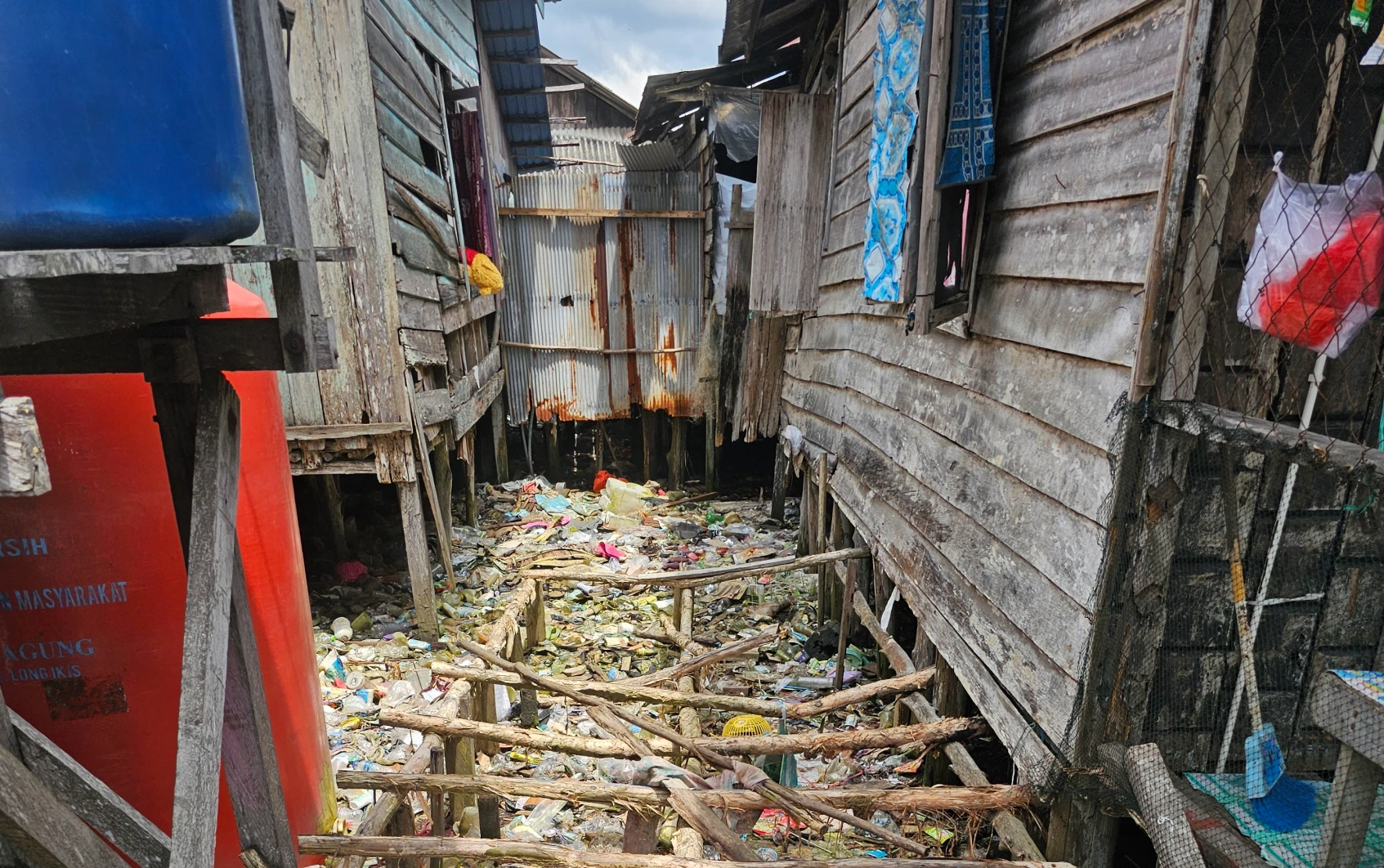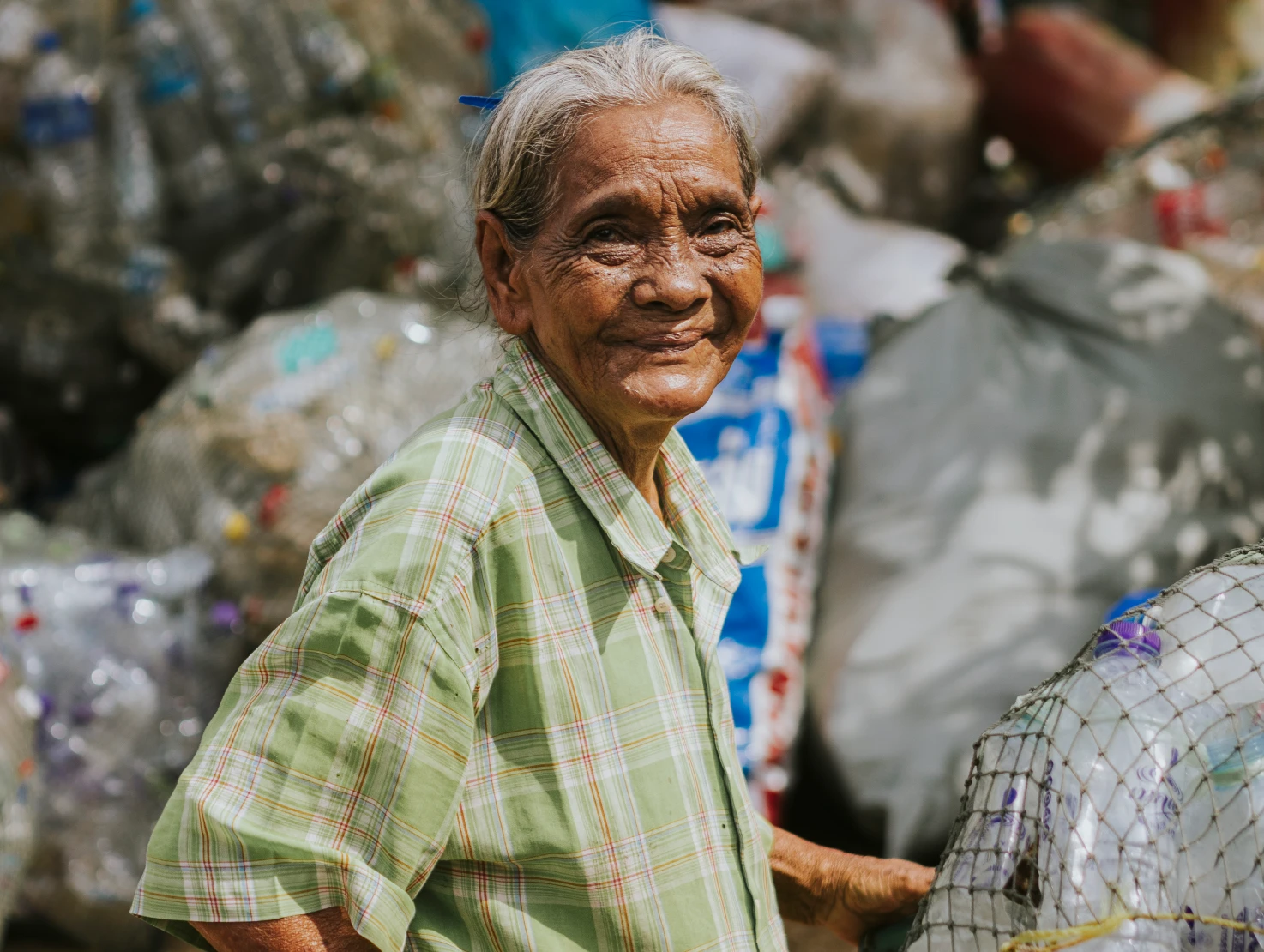
Krabi Ocean Guardians - Thailand
Our flagship project in Krabi is turning the tide on ocean pollution.
of ocean plastic waste were collected and recycled in 2024.
local collectors in 2024.

What we do
In 2024 alone, Second Life collected and recycled over 795 metric tons of ocean plastic waste in Krabi region. Through efficient sorting, baling, and resale of materials both locally and internationally, this project marks our most significant impact to date in reducing plastic pollution and advancing a truly circular economy. This achievement is made possible by the active participation of more than 850 registered local collectors who drive the Second Life program across Krabi.
Where you can find us
We operate across the coastal communities and surrounding islands of Krabi province, including Koh Lanta, Koh Pu, Koh Jum, Koh Klang, Koh Rok, and Koh Sriboya. If you’re spending your holidays in the region, you might spot our Second Life collectors in their blue shirts, actively working to preserve the area’s beautiful beaches.










